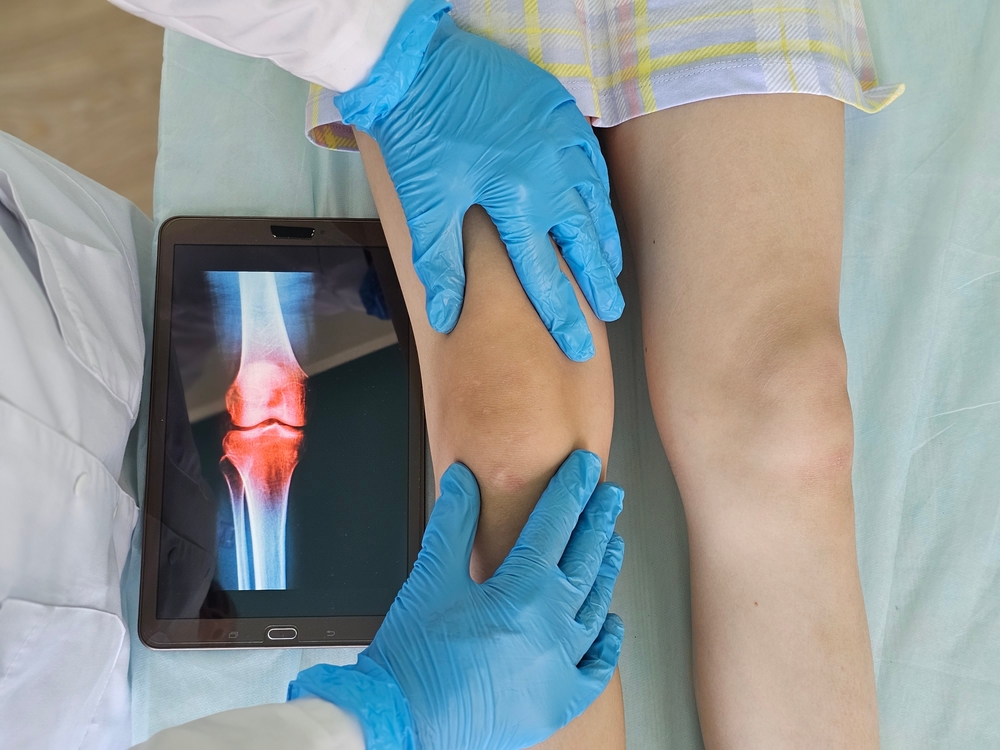
What is a Meniscus Tear?
The meniscus is a C-shaped piece of cartilage in your knee that acts as a shock absorber and cushion between your thighbone (femur) and shinbone (tibia). Each knee has two menisci—the medial (inside) and lateral (outside).A meniscus tear occurs when this cartilage is damaged or torn, often due to a sudden twist, forceful rotation, or direct impact to the knee. This type of injury is common among athletes but can also happen during everyday activities like squatting, lifting, or slipping.Symptoms may include pain, swelling, stiffness, a popping sensation, or difficulty straightening the knee.
Causes of Meniscus Tear
- Sudden twisting or turning of the knee
- Sports injuries (especially football, basketball, or tennis)
- Lifting heavy objects with poor posture
- Deep squatting or kneeling frequently
- Degeneration due to aging (wear and tear)
Common Symptoms
- Pain in the knee (especially when twisting or rotating)
- Swelling and stiffness
- Difficulty in straightening the knee fully
- Clicking, locking, or catching sensation
- Feeling of instability or the knee “giving way”
Complications if Left Untreated
- Chronic knee pain
- Osteoarthritis
- Reduced knee mobility
- Muscle weakness
- Long-term joint instability
Diagnosis
- Physical examination by a doctor
- MRI scan to view soft tissue damage
- X-rays (to rule out bone fractures)
- Arthroscopy (a minimally invasive surgery for diagnosis or repair)
Conventional Treatments
- Rest, Ice, Compression, Elevation (R.I.C.E)
- Pain relief medications (NSAIDs)
- Physical therapy and strengthening exercises
- Knee brace or support
- Surgery (arthroscopic meniscectomy or meniscus repair) in severe cases
How Acupuncture Helps in Meniscus Tear Recovery
Acupuncture, a part of Traditional Chinese Medicine (TCM), involves inserting fine, sterile needles into specific points of the body to promote healing and restore balance.
Benefits of Acupuncture for Meniscus Tear:
- Reduces Pain NaturallyStimulates the release of endorphins (natural painkillers) to relieve knee pain without side effects.
- Controls InflammationEnhances blood flow and reduces swelling in the injured area
- Speeds Up HealingImproves circulation, which helps deliver oxygen and nutrients to the damaged tissue for faster repair.
- Relaxes Muscles Around the KneeReduces tightness and muscle spasms, helping to restore joint mobility.
- Improves Range of MotionSupports joint flexibility and functionality during rehabilitation.
- Strengthens the Knee JointBy promoting overall energy (Qi) flow, acupuncture can improve muscular support and stability.
- Supports Emotional Well-beingHelps manage stress and anxiety that often accompany chronic pain or slow recovery.
Other Natural Supportive Therapies (Combined with Acupuncture)
- Cupping therapy: Improves circulation around the knee
- Moxibustion: Applies heat to stimulate healing
- Herbal medicine: For pain and inflammation
- Tui Na (Chinese massage therapy): For muscle relaxation
Prevention Tips
- Warm up before exercise
- Avoid sudden knee twists or deep squats
- Use proper footwear
- Strengthen thigh and calf muscles
- Maintain a healthy weight
- Practice balance exercises
Conclusion
A meniscus tear can be painful and limit your movement, but with the right care, especially holistic approaches like acupuncture, recovery can be faster and more natural. Acupuncture not only helps relieve pain and inflammation but also promotes deep healing from within—without relying heavily on painkillers or surgery.
If you’re dealing with knee issues or recovering from a meniscus tear, consider consulting a qualified acupuncturist for personalized therapy and support.